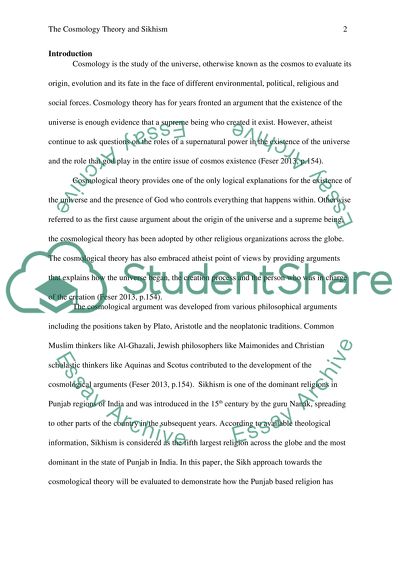Cite this document
(“The Cosmology Theory and Sikhism Essay Example | Topics and Well Written Essays - 5000 words”, n.d.)
The Cosmology Theory and Sikhism Essay Example | Topics and Well Written Essays - 5000 words. Retrieved from https://studentshare.org/religion-and-theology/1684850-philosophy-of-religion
The Cosmology Theory and Sikhism Essay Example | Topics and Well Written Essays - 5000 words. Retrieved from https://studentshare.org/religion-and-theology/1684850-philosophy-of-religion
(The Cosmology Theory and Sikhism Essay Example | Topics and Well Written Essays - 5000 Words)
The Cosmology Theory and Sikhism Essay Example | Topics and Well Written Essays - 5000 Words. https://studentshare.org/religion-and-theology/1684850-philosophy-of-religion.
The Cosmology Theory and Sikhism Essay Example | Topics and Well Written Essays - 5000 Words. https://studentshare.org/religion-and-theology/1684850-philosophy-of-religion.
“The Cosmology Theory and Sikhism Essay Example | Topics and Well Written Essays - 5000 Words”, n.d. https://studentshare.org/religion-and-theology/1684850-philosophy-of-religion.


